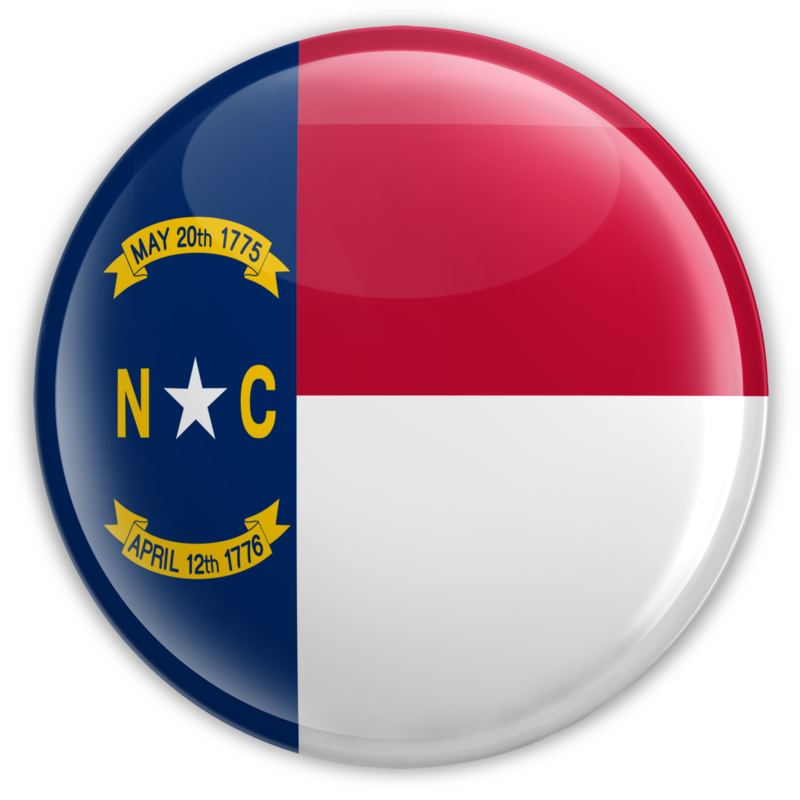 How to Retire with a North Carolina Self-Directed IRA
How to Retire with a North Carolina Self-Directed IRA
What is a “North Carolina Self-Directed IRA”? Well, it’s a long story—a story with a lot more freedom for your retirement interests than you might have imagined. But simply put, using a Self-Directed IRA in North Carolina—or in any state for that matter, means that you’re ready to take control over your retirement destiny by utilizing one of the most highly-protected means of investment available to you: your own retirement account.
North Carolina is a beautiful state with plenty of coast, plenty of sports, and plenty of scenery. If you want to retire in North Carolina on your terms, that will mean understanding what these self-directed accounts are all about—and how you can get started with one of your very own.
If it all sounds a little too daunting for you, don’t fret. It’s much simpler to understand than you’re imagining, and in utilizing a Self-Directed IRA, there’s a lot more freedom to make choices than you ever thought possible. Here’s how to get started today:
Basic North Carolina Self-Directed IRA Knowledge What You Need to Know
If knowledge is power, then knowledge in the field of retirement planning is wealth. With a Self-Directed retirement account, the knowledge of your freedoms is important. That’s why you should know what types of investments you can make with a retirement account you direct yourself:
- Real Estate: Using non-recourse loans, you can even utilize leverage within a retirement account when using a Self-Directed IRA. This includes commercial, residential, and retail real estate.
- Precious metals: Gold, silver, platinum, et al. You can protect your precious metal investments with many of the same retirement protections afforded to you as investments in stocks and bonds.
- Private companies: You aren’t limited to the public stock market. Private company investments also serve as valid investments in an IRA you direct yourself.
- Private lending: If you’re skilled at lending, private lending is possible within a self-directed account.
- Single Member IRA LLC: Using your funds from a self-directed IRA, you can then set up an LLC. You can purchase assets, make investments, and even have checkbook control over this LLC—all with the protections of a retirement account. Be sure to visit our page on Single Member IRA LLCs if you’re interested in learning more.
Getting Started with a North Carolina Self-Directed IRA: The Essentials
As with other retirement investments, you have a number of options when it comes to setting up your account. The types of Self-Directed IRAs are the same as the types of IRAs you commonly see promoted in any basic retirement advice blog: Traditional IRA, Roth IRA, SEP IRA, Solo 401(k), Simple IRA, etc. Choosing which type of account is right for you is no different when using a Self-Directed IRA, except that the basic one in charge…is you.
Likewise, setting up and funding these accounts is similar to setting up and funding any other type of retirement account. Specifically, consider these basic funding types: Rollovers, Conversions, Contributions, and Transfers. Before you make your investment, you’ll want to know the limitations and advantages/disadvantages of each funding type.
Local and Tax Considerations for North Carolina
All of the above applies to everybody. What about what’s going on in your state—in North Carolina?
- Taxation: Recent tax reform in North Carolina helped make the state more attractive to retirees, thanks to a flat state income tax rate of 5.8% enacted in 2014, lowered to 5.75% in 2015. This means that many people who were above certain taxation “lines” earlier have seen a drastic reduction in state income taxes. The standard deduction has also been lifted, up to $7,500 for singles and $15,000 for couples. Social security income is exempt from state taxation, which is favorable to current retirees.
- Housing: Median home prices according to the Zillow Home Value Index are at $148,200. This is highly favorable to anyone who has been living in a “high property value” area like a major metropolitan city and is looking to extend the value of their retirement dollar through home values.
- Wealth/asset protection: North Carolina requires you to use their own state exemptions when it comes to bankruptcy. For more details, click here. It’s important to know which assets can be protected from creditors in the case of bankruptcy, as these may one day have to be the retirement assets you rely upon.
Overall, North Carolina is a very favorable state for retirement if you’re proactive and understand the options available to you.
Learning More About North Carolina Retirement
Setting up a North Carolina Self-Directed IRA means knowing your individual state, knowing the advantages of retirement accounts, and knowing how to take the reins of your financial future. And if knowing is half the battle, then we encourage you to look for more knowledge here at AmericanIRA.com or by contacting us at 1-866-7500-IRA(472).
Image by: presentermedia.com
